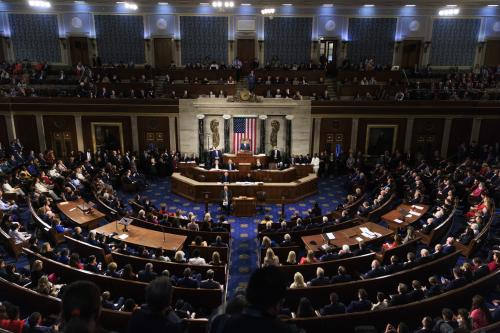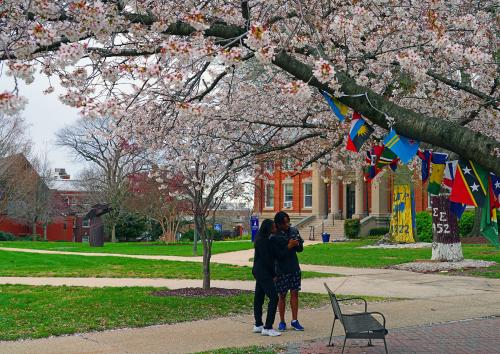The parades and the parties are over. As the nation’s capitol returns to the routines of governance, everyone wants to know – how will President Obama change in his second term? Will he be a different leader? A better leader?
Presidential leadership exists in a special, charmed section of the universe where substance and style intersect. It’s no secret that Obama’s first term leadership drove both his friends and his enemies to distraction on both counts. From time to time, the left wing of the Democratic Party was beside itself, convinced that what they were getting was Clintonism without the love. And from time to time, the centrists in the party were convinced that he was an old fashioned liberal in high-tech clothing. Among his enemies, especially on Capitol Hill, his detachment from the intimate, personal, in-your-face persuasion of politics made it easy for them to demonize him as some kind of alien elitist whose existence was dangerous to the Republic.
In terms of style, the President’s second term promises to be much better but not because the President himself has changed. In spite of President Lincoln’s recent adulation (Obama took the oath of office on Lincoln’s Inaugural Bible), Obama is not likely to lead a team of rivals, cutting one deal after another with members of the opposite party in order to pass legislation. Then again, he doesn’t really have to. Obama has discovered, perhaps belatedly, that his very own Vice President can cut these deals in a way that Obama himself cannot or will not. For the third time in Obama’s Presidency, Vice President Biden was able to cut a deal on fiscal issues with the Republicans when everyone else in the Administration had failed. No wonder the Economist called Biden “the McConnell Whisperer” for his ability to succeed with the Republican leaders when all others have failed.
In terms of substance, however, Obama’s second term faces a variation of the same problem. To understand why, let’s take a small step back. It is very difficult to figure out what elections actually mean. Political scientists have studied the issue to death and concluded that, in general, it’s near impossible to draw policy conclusions from an election. From time to time, the chattering class comes to a consensus on what “the mandate” is, but usually the most important interpretation of an election is the one that exists in the mind of the President himself.
Looking back at Obama’s first Inaugural Address gives us some insight into the mandate in his head back then. That address reveals that President Obama thought he won because he was so clearly not George Bush. At regular intervals, he reminded America of the economic mess he had inherited: “our economy is badly weakened, a consequence of greed and irresponsibility…without a watchful eye the market can spin out of control.” He also reminded America of the two wars he had inherited: “earlier generations… understood that our power alone cannot protect us, nor does it entitle us to do as we please.” In 2008, not being Bush was enough to win the election, but it wasn’t enough to govern. To be fair, it wasn’t all Obama’s fault. The economic crisis hit so hard and so late in the campaign that there was no time for the creation of a response equal to the problem. But once in office Obama and his team mis-judged the depth and severity of the crisis. They spent all their energy on health care – an issue that was orthogonal to a country reeling from a housing and unemployment crisis. By the end of that battle, the President didn’t have the political capital left to tackle climate change, immigration or the need for more stimulus. In 2010 he lost the House, thus limiting his options even more.
This time around, even though Obama won a smaller percentage of the electorate than he did in 2008, he seems to have a little more clarity about where to go. Much of the President’s speech yesterday was a tribute to the millennial generation, which has elected him twice now. Millennials identify with the call to collective action—a touchstone of Obama’s speech—and this generation’s acceptance of gay marriage is largely responsible for the President’s most overt endorsement yet. Immigration reform and support for taxing the wealthy were the two other clear mandates to emerge from the electorate and will provide a guide to action in the second term.
But the President’s speech was light on the economic problem meaning that his biggest challenge will be to not repeat the mistakes of the first term by underestimating the pain and suffering of the recession. He can’t assume that just because we’re moving in the right direction, attention can be turned to other issues—worthy as they may be. In the middle of yesterday’s speech he talked about how “America’s prosperity must rest upon the broad shoulders of a rising middle class.” That was his sole shout-out for the large swath of Americans that has been devastated by this recession. While a robust debate about the economy has begun, the fact is that the restoration of economic growth in Obama’s second term will be the key factor in cementing his coalition going forward. Slow economic growth nearly did in Obama’s presidency; taking his eye off that ball could do in his legacy. It deserved more than one line.
The Brookings Institution is committed to quality, independence, and impact.
We are supported by a diverse array of funders. In line with our values and policies, each Brookings publication represents the sole views of its author(s).



Commentary
Reflections on President Obama’s Inaugural Address, His Second Term and Presidential Leadership Style
January 22, 2013